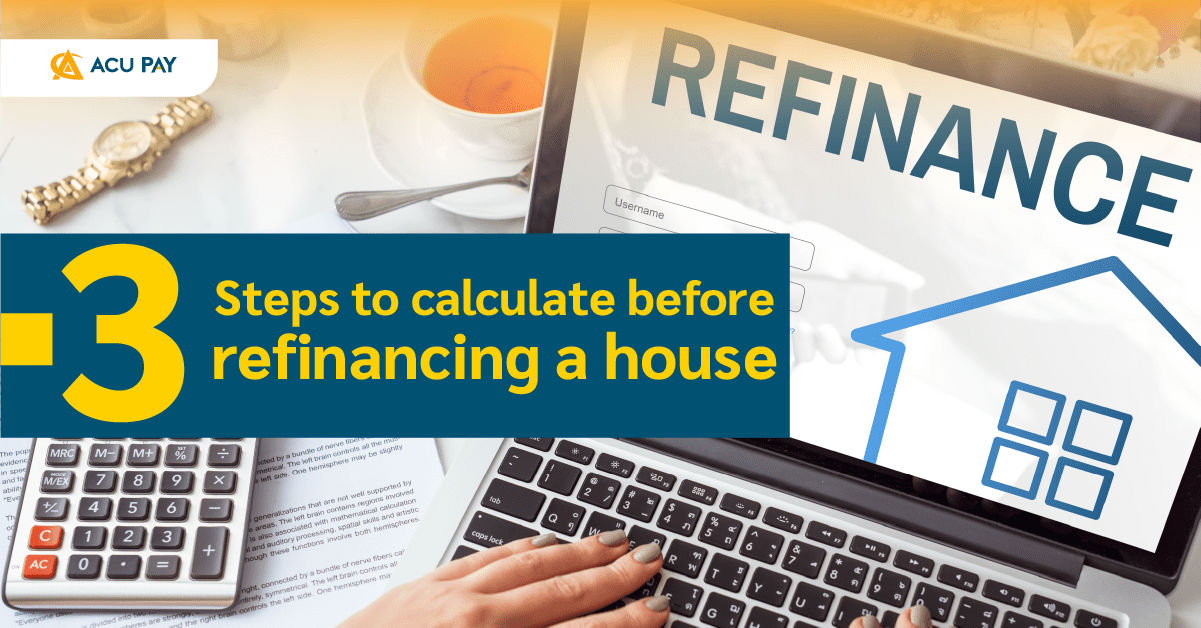

Refinancing is another alternative that many people look for when they are paying installments for a house for a while and start to feel like they cannot bear the burden of interest anymore because refinancing will help lower the interest. However, before you refinance, you should first calculate whether changing the bank is worth it or not. This time, ACU PAY will tell you 3 steps to calculate before refinancing.
Normally, those who have just bought a house will be offered house interest in a low-rate promotion by the banks which is an acceptable amount for them to pay. However, after the first three years, the low-interest rate promotion will expire and raise the interest rate from 2-3% to 4-5% per annum.
As a result, many borrowers seek a way to lower the house interest and one of them is refinancing or signing a new home loan agreement after three years of installment or under the terms of the home loan agreement to ask for lower house interest from the new bank.
The advantage of refinancing is to lower the house interest rate to be as close to the interest rate when you first buy the house. Also, it helps in reducing the period of paying installments, the principal of each month is lower, and you can apply for more loans if the remaining debt is lower than the approved limit.
Nevertheless, before you decide to do refinancing, calculate first whether changing banks is worth it or not. If you calculate and find that it will help you save the interest just for a little bit and you have to waste your time submitting information, refinancing may not be the best option.
Financial User Protection Center, Bank of Thailand (BOT), has given a three-step method of refinancing the house as follows:
1. How much does it save the interest?
The interest that can save = Principal x The interest rate that can save x The number of years
2. What are the costs of refinancing?
3. Is it worth it?
Compare number 1 and number 2 to see whether it worth it to refinance
If refinancing is quite not a good option, house borrowers may do the retention which is to negotiate with the same banks or same creditors to ask for a lower interest rate such as reduction, grace period and/or adjust the agreements as well.